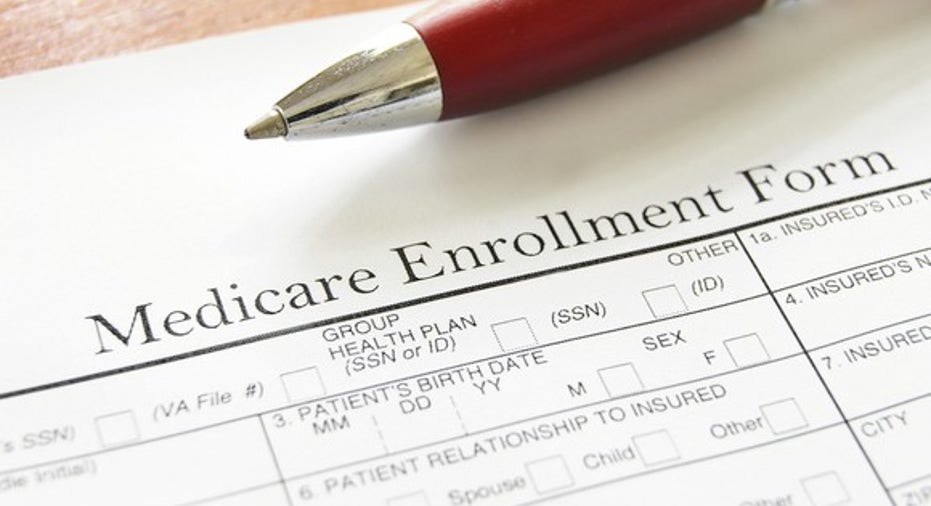How Would Hillary Clinton Change Medicare?

Image source: Getty Images.
In case you might have missed it, there's a contest underway to determine who the next president of the United States will be. While the media sometimes focuses more on personalities and controversies, the reality is that one of the presidential candidates will take office in January 2017 and be in a position to affect you, your family, and your friends with his or her policies.
Take Medicare, for example. Over 55 million Americans received benefits from the federal healthcare program in 2015,and that number will grow in the next decade as baby boomers age. Democratic presidential candidateHillary Clinton has laid out her plan for expanding Medicare. Here's how former Secretary of State Clinton plans to change the program -- and how it might impact you.
Lower drug prices
Prescription drugs increased from 11% of total Medicare spending in 2010 to 14% in 2014. This percentage is expected to grow more over the coming years, with expensive specialty drugs playing a major role in the increased spending.
Hillary Clinton proposes to control Medicare prescription drug spending in three key ways. First, she wants to allow Medicare to negotiate directly with drug and biologic companies to obtain lower pricing. Second, Clinton seeks to demand higher rebates from drug manufacturers. Third, she wants to allow the importing of lower-cost drugs from other countries, as long as those countries have approved safety standards.
How will Clinton's Medicare plan ultimately impact Americans? Her campaign estimates that Medicare would save more than $100 billion over 10 years. Lower drug prices would also save money for ordinary Americans, as Medicare Part D prescription drug plans include deductibles and other out-of-pocket spending.
There is a potential downside to Clinton's plan, though. The pharmaceutical industry could respond to lower profits by decreasing investment in research and development. If that happens, patients would likely see fewer new innovative medications come to market.
Reform payment models
Clinton wants Medicare to shift to new payment models. In particular, her plan endorses the idea of "bundled payments," rather than fee-for-service payments. With bundled payments, one payment is made for an episode of care, even when multiple healthcare providers are involved in that care.
For example, suppose a person has heart bypass surgery. With the fee-for-service payment model, the hospital, surgeon, and anesthesiologist involved in the surgery would each be paid separately. With the bundled payments model, Medicare would only pay one lump sum amount to one entity that coordinates all the care, such as an accountable care organization (ACO).
The goal for the bundled payment approach is to save money for Medicare by providing a financial incentive for providers to control costs. If the actual cost of service is less than the bundled payment, providers get to keep the difference.
While these payment model reforms primarily impact healthcare providers, they could affect Medicare recipients as well. Lower costs should help stretch out-of-pocket spending by individuals. On the negative side, there is a possibility that more healthcare providers will opt out of taking on the financial risk that comes with bundled payments. If that happens, Medicare beneficiaries' choice of healthcare professionals would be more limited in the future.
Push back against big premium increases
Clinton also plans to restrict health insurance companies' ability to increase premiums by excessive amounts. She intends to accomplish this by giving states more power to block rate increases and by vigorously enforcing antitrust laws to prevent mergers that could harm consumers.
Around 19% of Medicare beneficiaries are enrolled in Medicare supplement policies sold by private insurers. Another 21% are enrolled in a Medicare Advantage plan offered by private insurers.If Clinton's plan is put into effect, it could mean that Americans pay less for those policies in the future than they would otherwise.
Of course, just like other components of Clinton's plan, this could have unintended consequences. If private insurers aren't allowed to raise rates to cover legitimately higher costs, then they will be more likely to discontinue offering Medicare supplement or Medicare Advantage policies. Less competition could ultimately lead to higher prices.
Medicare for more
Perhaps the most controversial -- and far-reaching -- Medicare change mentioned by Hillary Clinton is what she has called "Medicare for more." No specifics about this proposal have been put forward, but the general idea is to allow a younger cohort of Americans (perhaps those over age 50 or 55) to participate in the Medicare program. Currently, only individuals over age 65 (and their dependents, in some cases) can enroll in Medicare.
Wouldn't this idea put Medicare in even greater financial jeopardy? Maybe not. Younger people (even if they're over 50) generally have fewer health problems than older Americans, and the premiums paid by the additional beneficiaries might help the program.
The "Medicare for more" concept would likely have the most difficult path to becoming a reality of any part of Clinton's Medicare plan, though. With 55% of Americans supporting a private U.S. healthcare system rather than a government-run system, a significant expansion of Medicare could be an uphill battle.
The article How Would Hillary Clinton Change Medicare? originally appeared on Fool.com.
Try any of our Foolish newsletter services free for 30 days. We Fools may not all hold the same opinions, but we all believe that considering a diverse range of insights makes us better investors. The Motley Fool has a disclosure policy.
Copyright 1995 - 2016 The Motley Fool, LLC. All rights reserved. The Motley Fool has a disclosure policy.



















